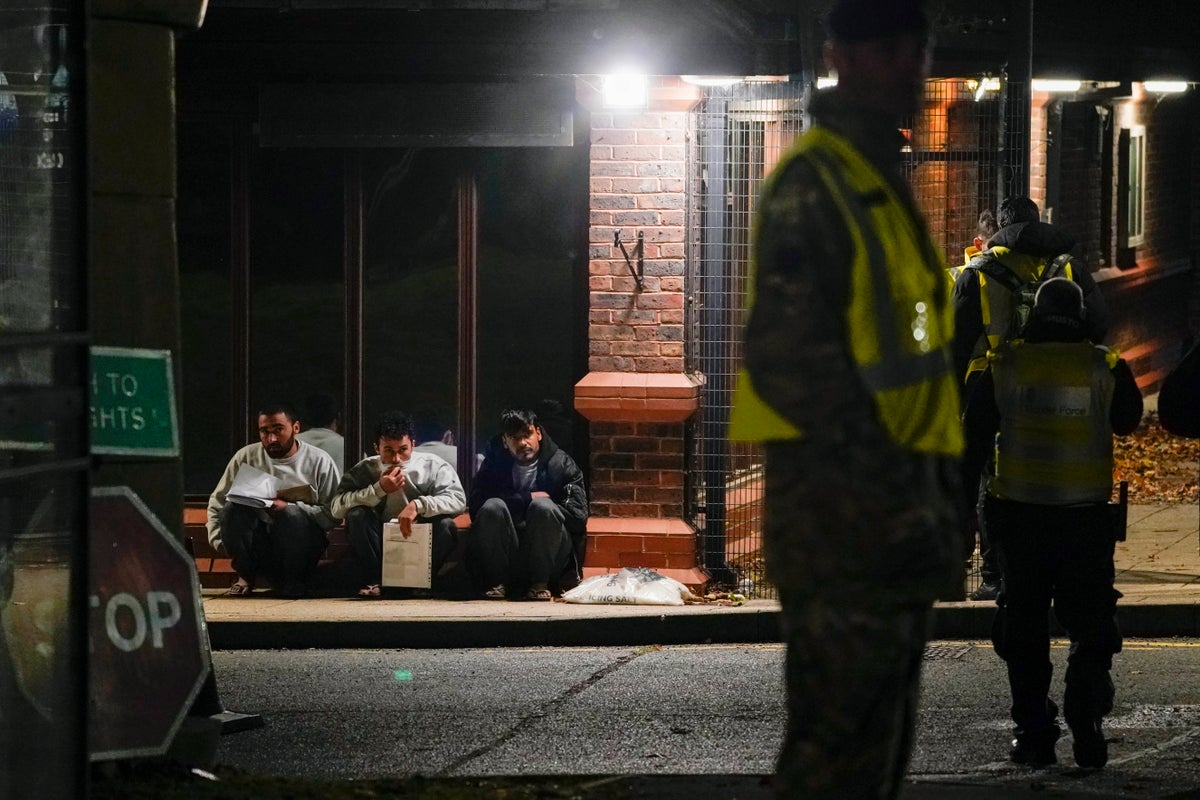
Suella Braverman wants to create a law allowing the government to seize and search phones belonging to small boat migrants, despite the Home Office being censured for the same practice just last year.
The Home Office admitted acting unlawfully when it seized mobile phones from all migrants crossing the Channel between 2018 and 2020.
The High Court heard that British authorities kept migrants’ mobile phones for several months, leaving them unable to contact their loved ones. Judges ruled the “wholly impractical and disproportionate” practice violated data protection laws and human rights, and censured government lawyers for falsely denying the policy’s existence.
Now the government has made an amendment to the Illegal Migration Bill to create new powers to “search for, seize and retain” mobile phones and “other things on which information is stored in electronic form”. It also wants to “access, copy and use that information”.
A new clause lodged by the home secretary says small boat migrants’ phones “may be retained by an immigration officer or the secretary of state, for so long as the officer or secretary of state considers its retention necessary”.
Immigration minister Robert Jenrick said the law, which was passed by MPs and is now being scrutinised in the House of Lords, would allow authorities to “seize the mobile phones of every migrant crossing the Channel and mine them regularly for intelligence”.
The move comes as the Information Commissioner’s Office confirmed to The Independent that the government remains under investigation for its previous seizure policy. The Home Office referred itself to the watchdog in July 2021, after legal action was launched by several asylum seekers who had their phones confiscated and searched.
The High Court heard that the men, from Iraq and Iran, were all arrested on arrival in the UK despite committing no crime and stripped of their possessions. One of the men feared his wife and seven-year-old daughter had been killed but could not contact them.
The Home Office told the court that it had operated the unlawful blanket policy until November 2020, admitting it violated both the European Convention on Human Rights and Data Protection Act.
Lawyers representing former home secretary Priti Patel said officials had demanded asylum seekers’ PIN codes to unlock their phones “under threat of non-existent criminal sanctions”, and then put call and text logs onto a database called Project Sunshine.
Privacy International, which intervened in the case, accused the Home Office of “attempting to legalise a policy that was found just last year to be in violation of the right to privacy”.
“Seizing phones from asylum seekers – often the only link they have back to their friends and family and searching their entire contents is an invasive and degrading practice,” said legal officer Lucie Audibert.
“The government is trying to make parliament rubber stamp it, hoping it goes unnoticed amongst the dozens of other outrageous anti-migration measures in the bill.
“It would have been at least decent to wait for the information commissioner’s opinion before pressing ahead with an unhinged anti-migrant practice.”
The High Court heard that the original policy aimed to generate leads for smuggling investigations, but over four months in 2020 the trawl did not “result in any further activity”.
“The seizure of these devices and their extraction involves a very considerable intrusion into privacy,” judges warned in the resulting ruling.
Lord Justice Edis and Mr Justice Lane blasted a “failure of governance which allowed an unlawful policy to operate for an unknown length of time” and said government lawyers had wrongly denied the policy’s existence in letters to asylum seekers.

The judges ordered the Home Office to write to all migrants affected informing them that it was unlawful and that a data breach had taken place.
They said the Home Office had apologised for breaching its “duty of candour” and assured them it was taking the matter seriously.
At the end of the court battle, it disclosed that it still had more than 400 phones in storage that could not be returned and were “marked for destruction” because their owners could not be traced.
A Home Office spokesperson said the new powers would be used to establish identities and obtain evidence of immigration offences. It comes after the government made arriving in British waters without permission illegal last year.
A statement added: “It is paramount that we also use every tool at our disposal to investigate and disrupt the people smuggling networks who facilitate these dangerous crossings, including seizing mobile phones which could assist with criminal investigations.”







